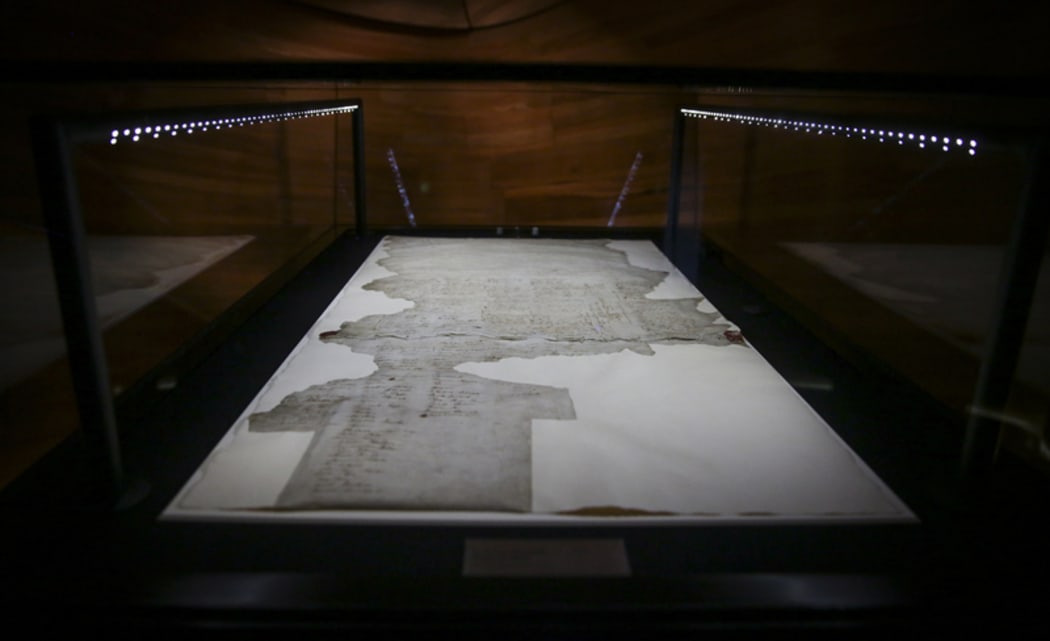The Māori Pandemic Response group has criticised the emergency Covid-19 legislation for its failure to reference Te Tiriti o Waitangi.

Te Tiriti o Waitangi Photo: RNZ / Rebekah Parsons-King
The Covid-19 Health Response Bill is subject to an inquiry after there was backlash when the government sought to push the legislation through under urgency.
At the time, Māori leaders condemned the power the legislation gave police to go onto marae without permission, a reference that was later removed by the government.
Te Rōpū Whakakaupapa Urutā co-leader Teresa Wall told MPs the legislation fell short in respect of marae.
"The Act fails to recognise the cultural significance and importance of marae, instead placing marae in the same category as any other building."
Wall told MPs that her group, Te Rōpū Whakakaupapa Urutā - which is made up of Māori doctors, policy experts, and academics - supported the previous specific mention of marae in the legislation, but it wasn't communicated properly.
"We did have some concern that the explanation for including marae as an exemption from other buildings was not well explained and that it could be interpreted that Māori were the problem."
Wall also condemned the failure to include reference to the principles of the Treaty of Waitangi - protection, partnership and participation.
She said reference to Te Tiriti would require an enforcement officer "to at least liaise with marae trustees or an iwi representation and enable them to have a first attempt at addressing the concern or issue that requires and enforcement officer to act".
She said most of the government's Covid-19 response was too slow in recognising that sub-populations had different social constructs.
"That's one of the important things about having a Treaty statement in any legislation is that it reminds people - officials, and government - that it's important to engage with Māori."





